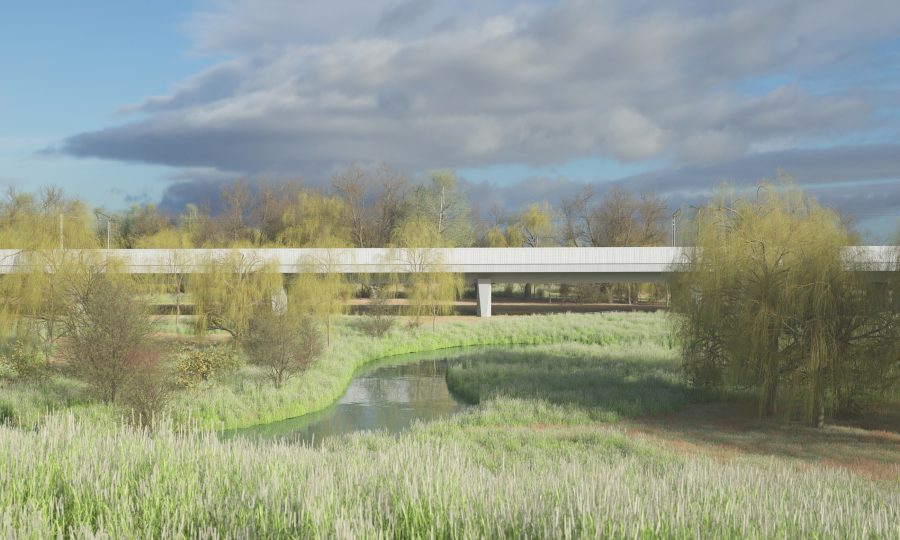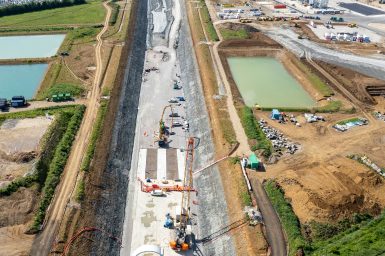
A net-zero railway
All our trains will be powered by zero carbon energy from day one of services. For us, that means becoming net zero from 2035. For you, it means enjoying zero carbon high-speed travel.
HS2 trains will be powered by zero carbon energy from day one of operation, offering a cleaner alternative to long distance car journeys and domestic flights. This commitment will play a key part in supporting HS2 Ltd’s aim to make the project net zero carbon from 2035, with targets of diesel free construction sites and reducing the carbon content of steel and concrete.
Zero carbon high-speed travel
HS2 is being designed and built to be the most sustainable high-speed rail network in the world. Cutting carbon emissions informs our work as we build a climate-resilient railway that will transform long distance, intercity travel and rebalance the UK economy.
Transport has a huge role to play in the economy reaching net zero. The scale of the challenge demands a step change in both the breadth and scale of ambition and we have a duty to act quickly and decisively to reduce emissions.
How we'll cut carbon
Travel HS2 trains, stations, depots and rail infrastructure will use zero carbon energy.
Construction HS2's Net Zero Carbon Plan will catalyse the wider industry’s transition to net zero.
Business From 2025 HS2 Ltd will be net-zero for our corporate activities.

Destination net zero
To tackle climate change, the UK must address its largest source of carbon emissions – transport. The clean, green answer is rail.
HS2 will create space for more, new, local and regional train journeys. It’ll not only change how people travel, but also how goods will be moved increasingly by rail rather than road. With more space for freight trains, hundreds of thousands of lorries will be taken off the road every year, with an extra freight train removing up to 76 lorries from our roads – which will reduce traffic, carbon emissions and improve air quality.
HS2 will also provide a zero carbon alternative to domestic air travel between Scotland and the South East by better connecting our major cities. Because unlike planes and lorries, train travel on HS2 will be electric which will be from zero carbon energy. Making HS2 the most efficient, zero carbon option for moving large numbers of people around the country.
From 2035, we will either reduce the emissions we produce to zero or make those we cannot eliminate net zero using natural or technological methods, known as carbon offsetting. This will allow us to remove the same level of emissions that HS2 produces. Our target covers the way the high-speed rail network is built, operated and maintained from 2035.
How we get to destination net zero from 2035
24.6% reduction in contractor emissions by March 2021
2021First diesel-free works site – and all sites by 2029
202211% reduction in HGV CO2 emissions compared with 2020
2027Contractors challenged to achieve a 50% reduction in carbon emissions by 2030
203050% cut in emissions from concrete and steel by 2030
2030HS2’s overall operations will be net zero from 2035
2035

How we're managing construction impacts on the environment

Air quality
HS2 will cut emissions, improve air quality and support a net-zero carbon economy.

Construction noise and vibration
We take all reasonable steps to minimise effects of sound, noise and vibration.

Water supply and management
Protection of the water environment is one of our fundamental commitments.